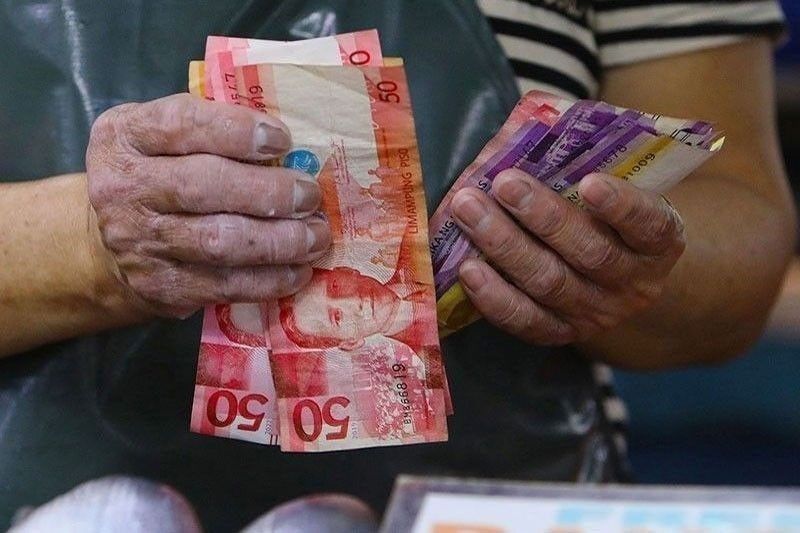
Upgrade to High-Speed Internet for only ₱1499/month!
Enjoy up to 100 Mbps fiber broadband, perfect for browsing, streaming, and gaming.
Visit Suniway.ph to learn
Alexis Romero - The Philippine Star
April 3, 2025 | 12:00am
MANILA, Philippines — The public should not panic over the military being ordered by its chief Gen. Romeo Brawner to brace for a possible invasion of Taiwan by China, Malacañang said yesterday.
At a press briefing, Presidential Communications Undersecretary Claire Castro said it was just right for Brawner – as chief of the Armed Forces of the Philippines (AFP) – to remind soldiers and the rest of the Filipinos of the need to be prepared for all kinds of contingencies.
“We have heard and read about the statements of AFP chief Romeo Brawner and we think the people should not worry about it,” Castro said.
“If such contingencies take place, we are always ready... If that happens, we should not sleep on the job. We should be ready,” she added.
Among the possible scenarios the government should brace for is mass repatriation of Filipinos in Taiwan, Castro said. It would be up to the military and the defense department to discuss the details of such preparations, she added.
As fears of a possible invasion of Taiwan by China grow, Castro assured the 250,000 Filipinos in the self-ruled island that the government is ready to assist them.
“Stay cool and remember, the government is prepared to help them anytime,” the Palace press officer said.
Castro also denied allegations by Beijing’s foreign ministry that Chinese were being harassed in the Philippines.
In a travel advisory dated April 1, the Chinese foreign ministry said Philippine law enforcement agencies “have frequently interrogated and harassed Chinese citizens and businesses.”
It added that public security in the Philippines has been “unstable” and political rallies, marches and demonstrations “have increased significantly in various places.”
No harassment
Castro said everyone is welcome to visit the Philippines, but law enforcers would implement the law against those who commit crimes.
“Their travel advisory is just a normal consular function of China. And we can assure China that we do not target a particular nationality or a particular national to harass,” she said.
The press officer said the issue may have stemmed from the enforcement of the ban against Philippine offshore gaming operators or POGOs, involving mostly Chinese nationals.
China claims Taiwan as part of its territory. However, Taiwan views itself as an independent sovereign state. Like most countries, the Philippines subscribes to a one-China policy, but deals with Taiwan on economic and cultural matters.
Brawner aired his order for soldiers to prepare for a Chinese invasion of Taiwan in a speech at the anniversary celebration of the AFP Northern Luzon Command last Tuesday.
In his speech, Brawner said the Philippine military would be “inevitably” involved if something happens to the island.
Brawner’s remark came after the Eastern Theater Command of the Chinese People’s Liberation Army (PLA) held military exercises around Taiwan, including “blockade on key areas and sea routes.”
Media reports have quoted PLA Eastern Theater Command spokesman Senior Colonel Shi Yi as saying that the exercise was “a stern warning and forceful deterrence against Taiwan independence separatist forces” and “a legitimate and necessary action to safeguard China’s sovereignty and national unity.”
China’s signaling tool
In an interview with “Storycon” on One News, retired admiral Rommel Jude Ong said China’s recent military drills around Taiwan may be in response to developments in the region, including the recent visit of US Defense Pete Hegseth to the Philippines and Japan.
“Its (China’s) activities are like a signaling tool. When you say signaling tool, the way they convey message is through those exercises or by shooting missiles,” Ong said.
“There are events that precipitated that messaging. Number one is the visit of the US Secretary of Defense to the region,” he added.
He also cited the “internal dynamics” in Taipei and Beijing, noting the recent deportation of Chinese influencers from Taiwan.
Despite what some view as an escalation of the situation in the region, Ong said he does not think that recent events are a prelude to China’s full-scale invasion of Taiwan.
But he noted that China is “normalizing” the presence of planes and ships around the island, which he said could make it difficult to determine if it is just doing a drill or is already initiating an invasion.
For Ong, Beijing appears to be testing the US response to its actions under the administration of President Donald Trump.
He also said Brawner’s declaration was for a “non-combatant evacuation operation.”
Senators, meanwhile, have expressed alarm over Brawner’s pronouncement. “Just by reading the news, I get saddened by a plan that we will get ourselves involved in the China-Taiwan issue. But the AFP’s concern really is rescuing Filipinos in Taiwan,” Senate Minority Leader Aquilino Pimentel III said.
“The AFP chief should clarify why the Philippines is concerned with the China-Taiwan issue. That it is all about the rescuing of the 100,000 plus Filipinos in Taiwan during a period of armed hostilities,” he added.
Sen. Joel Villanueva also expressed worry but said he agreed with Brawner that preparations should be made. At a press briefing, Sen. Sherwin Gatchalian said the priority should be the rescue of OFWs who would be affected by a possible invasion of Taiwan.
“Our government should already think of the speedy ways to bring home the hundreds of thousands of OFWs. Is it by plane, or by ship because Taiwan is near? These possibilities should already be studied,” he said. – Marc Jayson Cayabyab, Janvic Mateo, Cecille Suerte Felipe, Emmanuel Tupas

 2 months ago
17
2 months ago
17



